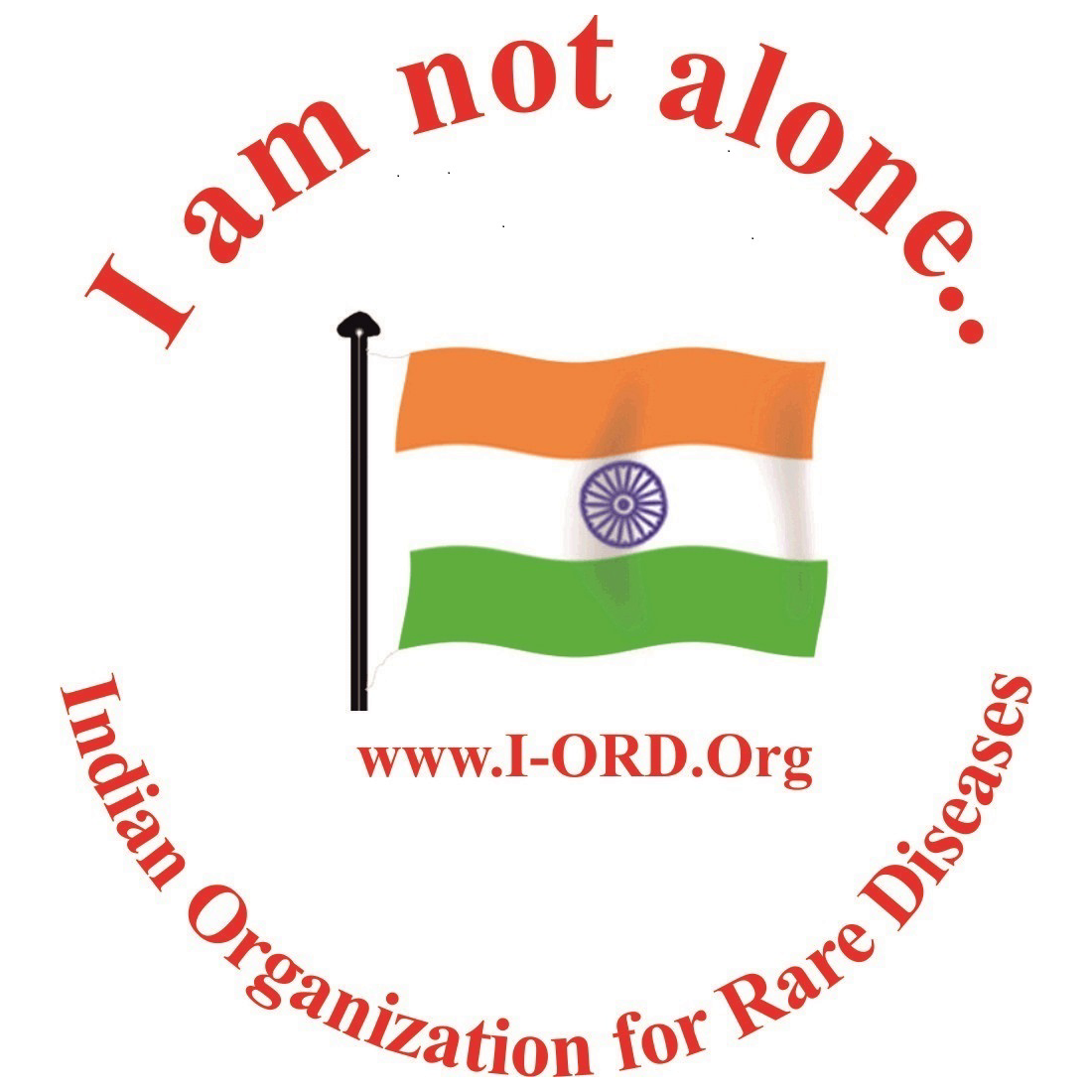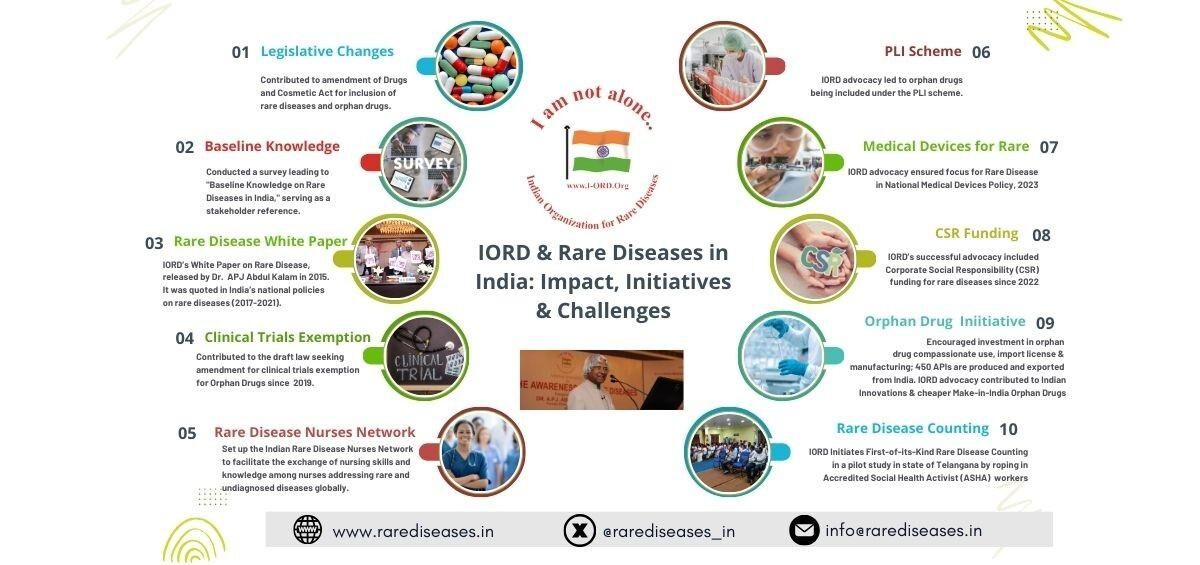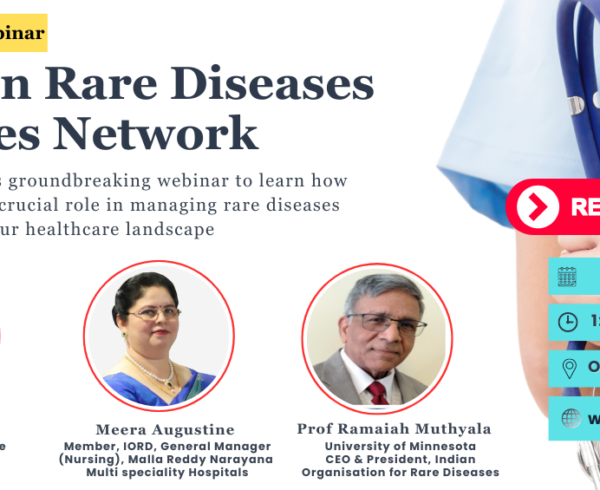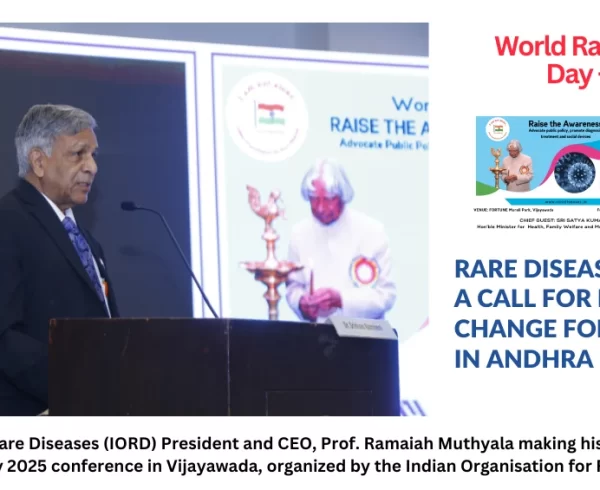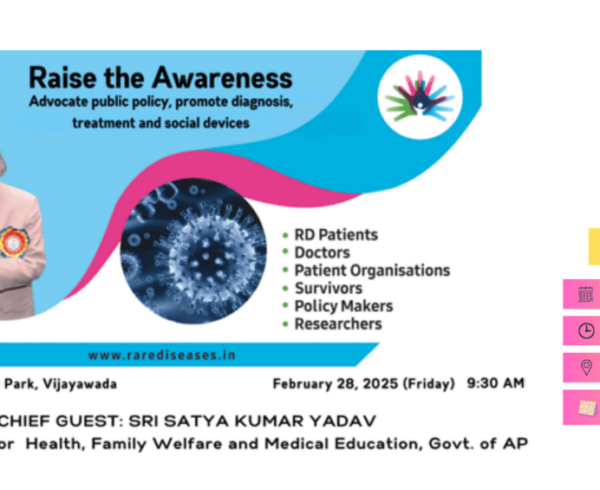Rare diseases, though affecting a small percentage of the population, represent a significant public health challenge in India. The Indian Organisation for Rare Diseases (IORD) has been at the forefront of advocating for policies, raising awareness, and improving treatment access. Rare diseases not only lead to the loss of human productivity but also place a heavy financial and emotional burden on families. To combat these challenges, IORD works tirelessly to bring together policymakers, patient groups, healthcare providers, and industry stakeholders to create sustainable solutions. Check video here!
Impact
- Policy Advocacy:
IORD played a crucial role in the amendment of the Drugs and Cosmetics Act to include rare diseases and orphan drugs. Additionally, its efforts ensured that orphan drugs were included under the ₹15,000 crore Production Linked Incentive (PLI) scheme and in the National Medical Devices Policy, 2023. - Awareness and Research:
IORD’s survey, “Baseline Knowledge on Rare Diseases in India,” highlighted a significant lack of awareness among health professionals. Their White Paper on Rare Diseases, released by former President Dr. APJ Abdul Kalam in 2015, has been a foundational reference for India’s national policies. - Cost Relief and Innovations:
The Indian government waived customs duty on essential drugs and food items for rare diseases. IORD’s advocacy encouraged “Make in India” orphan drug manufacturing, with 450 active pharmaceutical ingredients (APIs) now produced domestically. - Global Collaboration:
IORD facilitated partnerships in genome editing and genetic therapy research, emphasizing the importance of international collaboration.
Initiatives
- Surveys and Registries:
IORD conducted a landmark survey revealing that 43% of health professionals had never encountered a rare disease patient. The ICMR National Registry for Rare and Other Inherited Disorders was launched in 2019 to document cases, though uptake remains limited. - Innovative Projects:
The Rare Disease Counting Pilot Project in Telangana, in collaboration with Project Y and international partners, aims to better estimate the prevalence of rare diseases. - Support Networks:
The Indian Rare Disease Nurses Network was established to share expertise in managing rare and undiagnosed diseases. - National Policies:
IORD’s advocacy influenced the National Policy on Research and Development and Innovation in Pharma-MedTech, and programs like PRIP to promote pharmaceutical innovation.
Challenges
- High Costs:
India exports most APIs for rare disease drugs but imports finished products at exorbitant costs. For example, Trientine, used for Wilson’s disease, costs ₹1.6 crore annually when imported. - Limited Diagnosis:
Despite 12 Centres of Excellence (CoEs) and 5 Nidaan Centres, patients face delays of up to 20 years for a diagnosis. - Data Gaps:
The Census 2021 failed to include questions about rare diseases, leaving a significant gap in patient data. Only 14,994 cases have been documented in the national registry since 2019. - Ineffective Crowdfunding:
The national crowdfunding platform for rare diseases has raised just ₹358,232, proving it to be an unsustainable funding model. - Underutilized Funds:
CoEs spent only 48.7% of allocated funds between 2021 and 2024, highlighting inefficiencies in fund utilization. - Policy Shortcomings:
Bureaucratic delays and the absence of a centralized knowledge repository hinder effective rare disease management. The Office for Orphan Products Development (OOPD) proposed by IORD is yet to be established. - Ethical Challenges:
Pharma researchers face the dual burden of addressing ethical issues and ensuring accessibility for domestic patients while balancing global collaborations.
Conclusion
IORD’s advocacy and initiatives are paving the way for better rare disease management in India, but significant hurdles remain. Addressing these challenges requires a collaborative effort between the government, healthcare providers, pharmaceutical companies, and patient groups. With sustained focus on innovation, awareness, and efficient policy implementation, the vision of accessible care for rare disease patients in India can become a reality.
